Roosevelt Elementary performance honors black history, Nelson Mandela
-
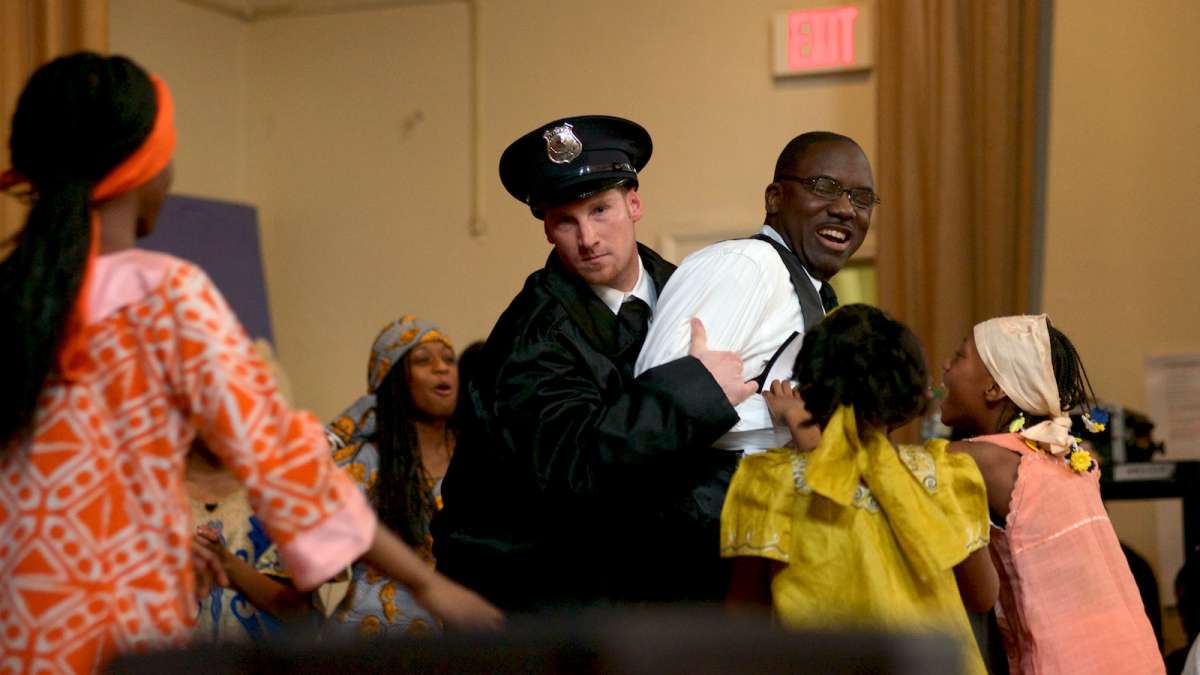
-
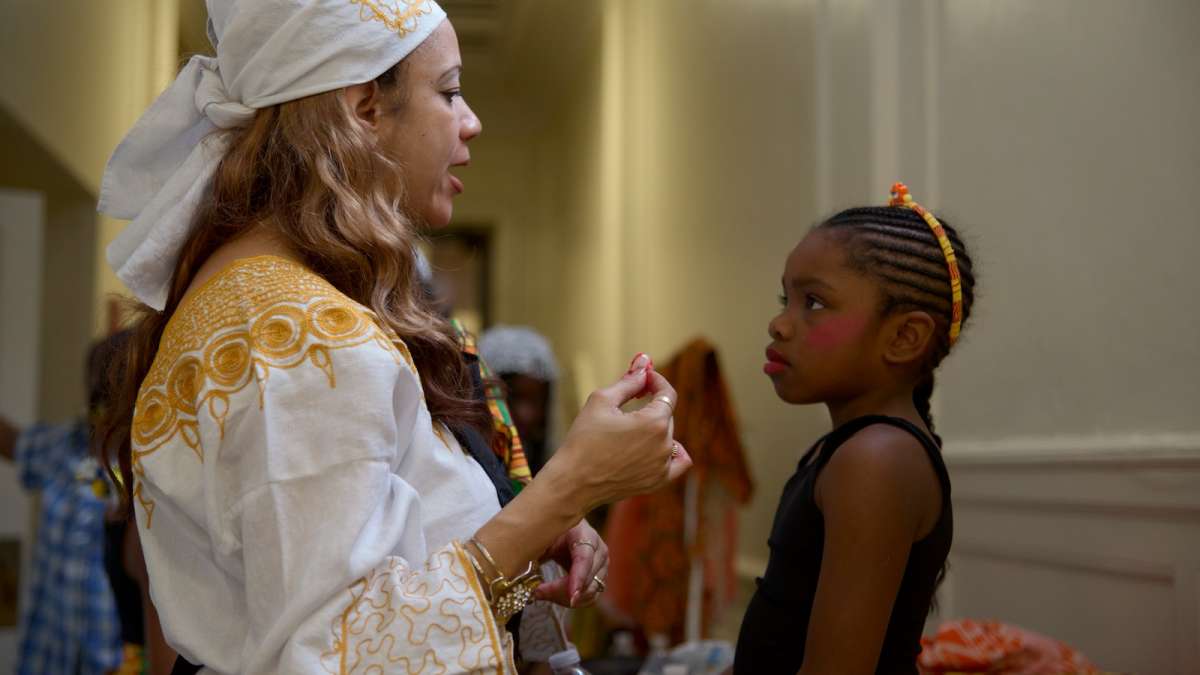
-

-

-
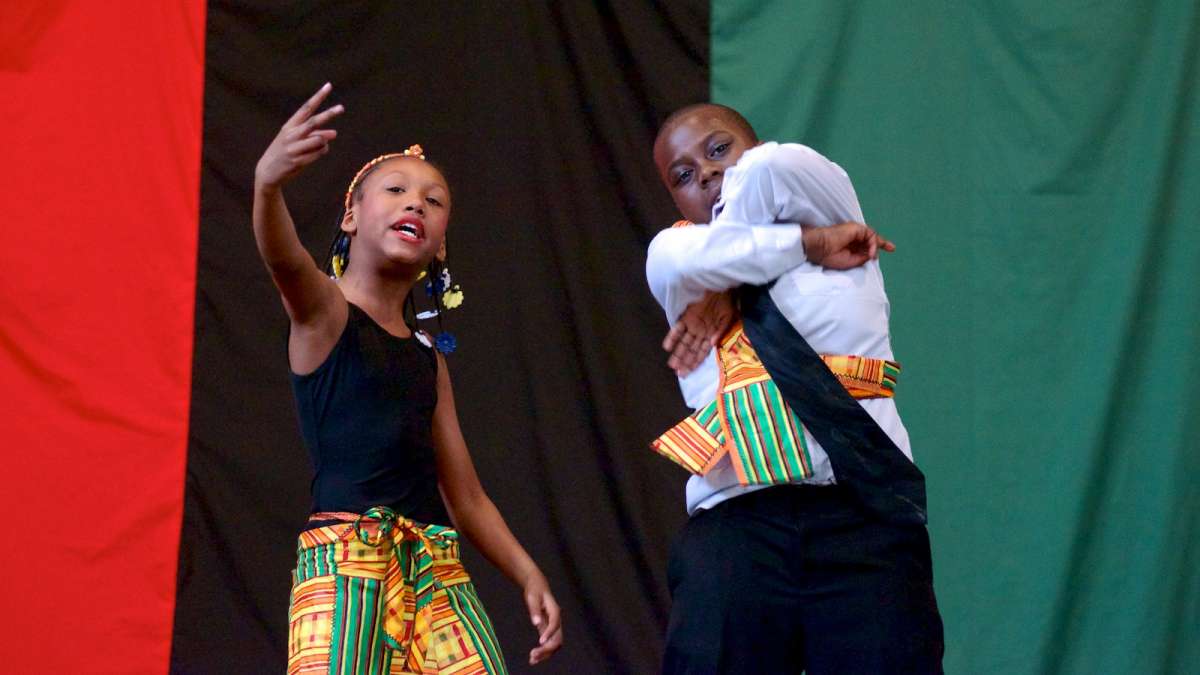
-

-

-
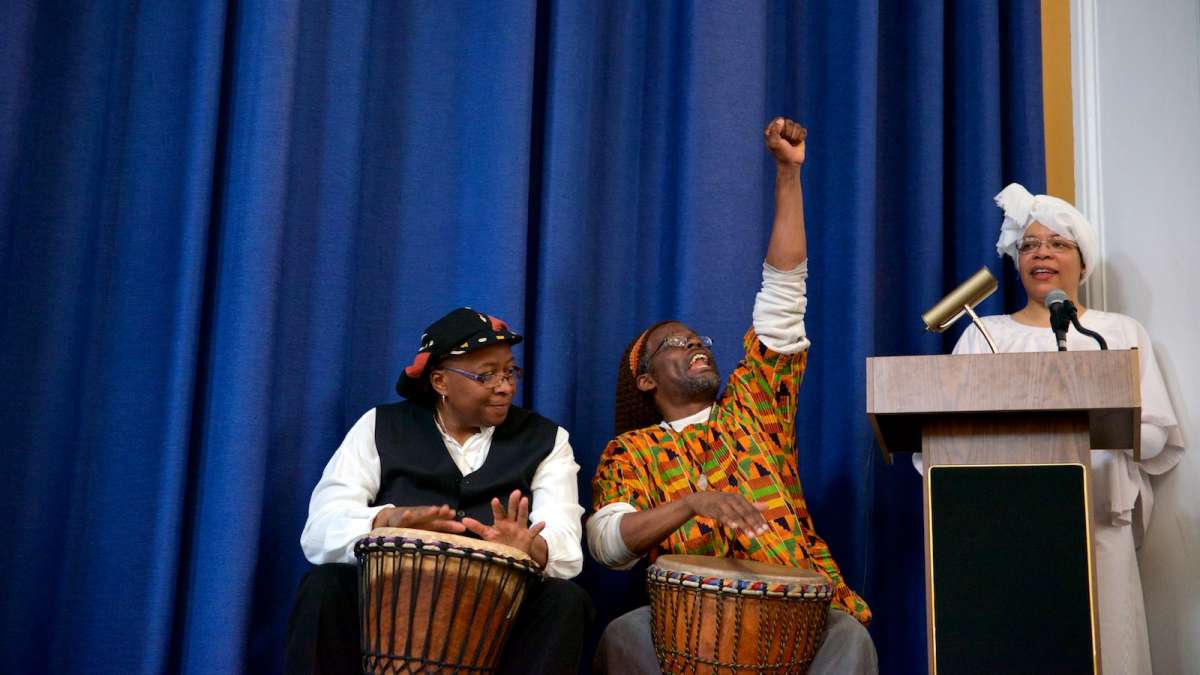
-
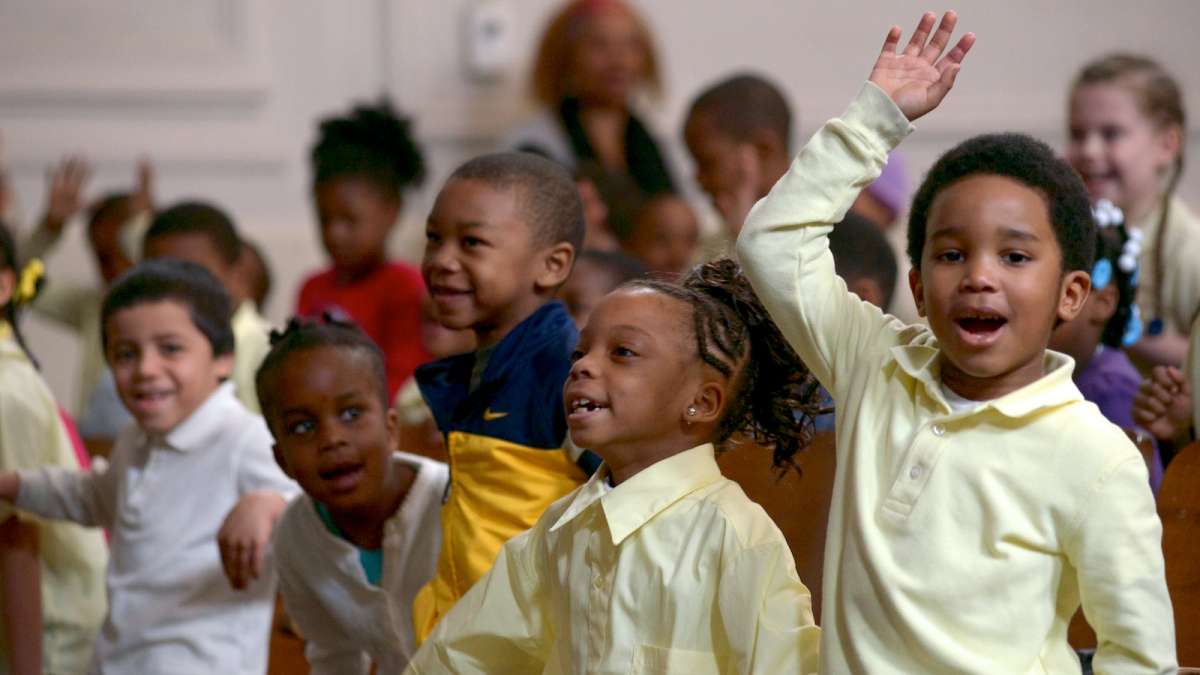
-
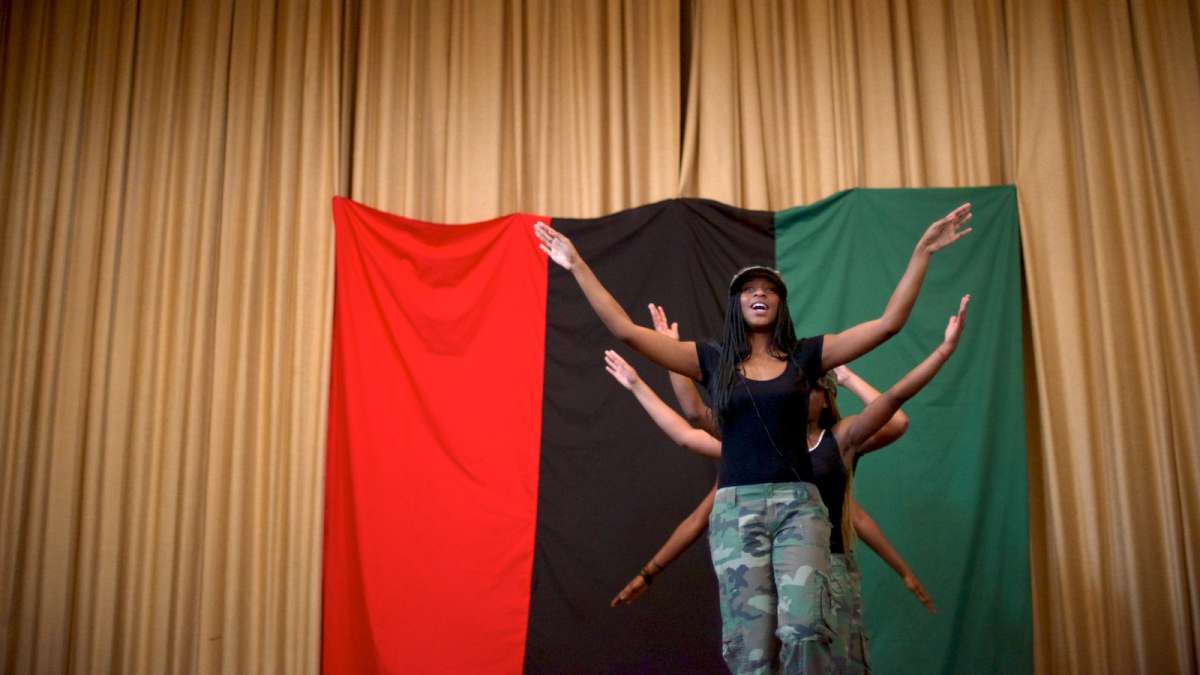
-
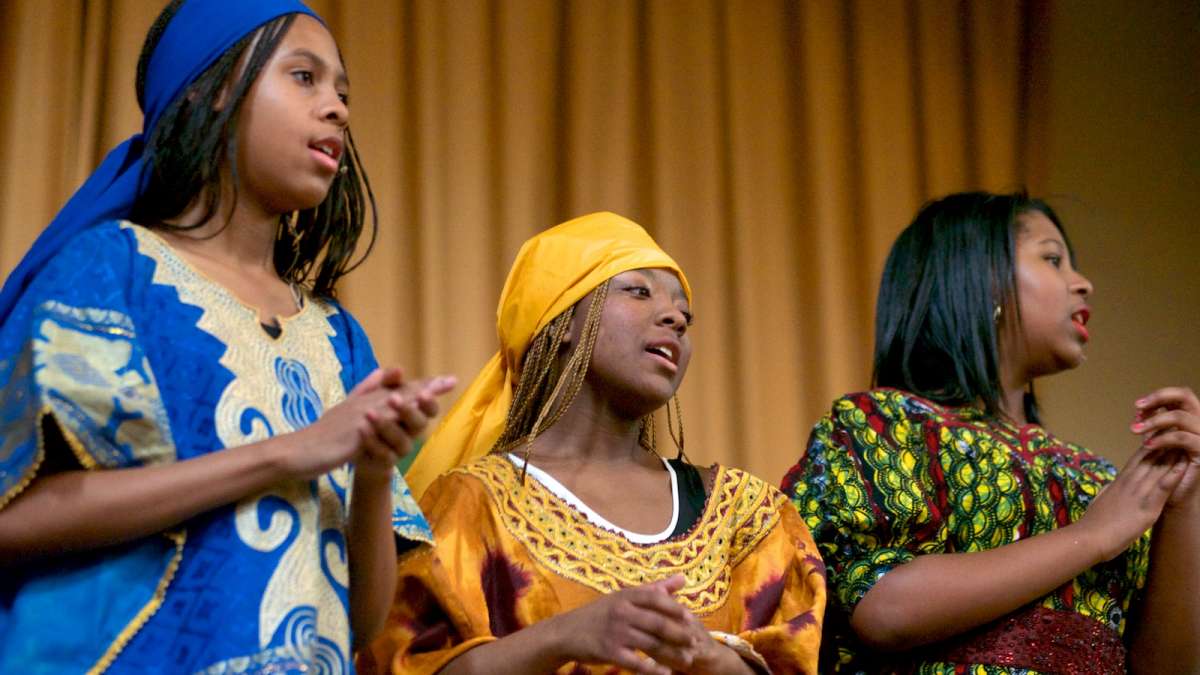
-

-

-

-

-
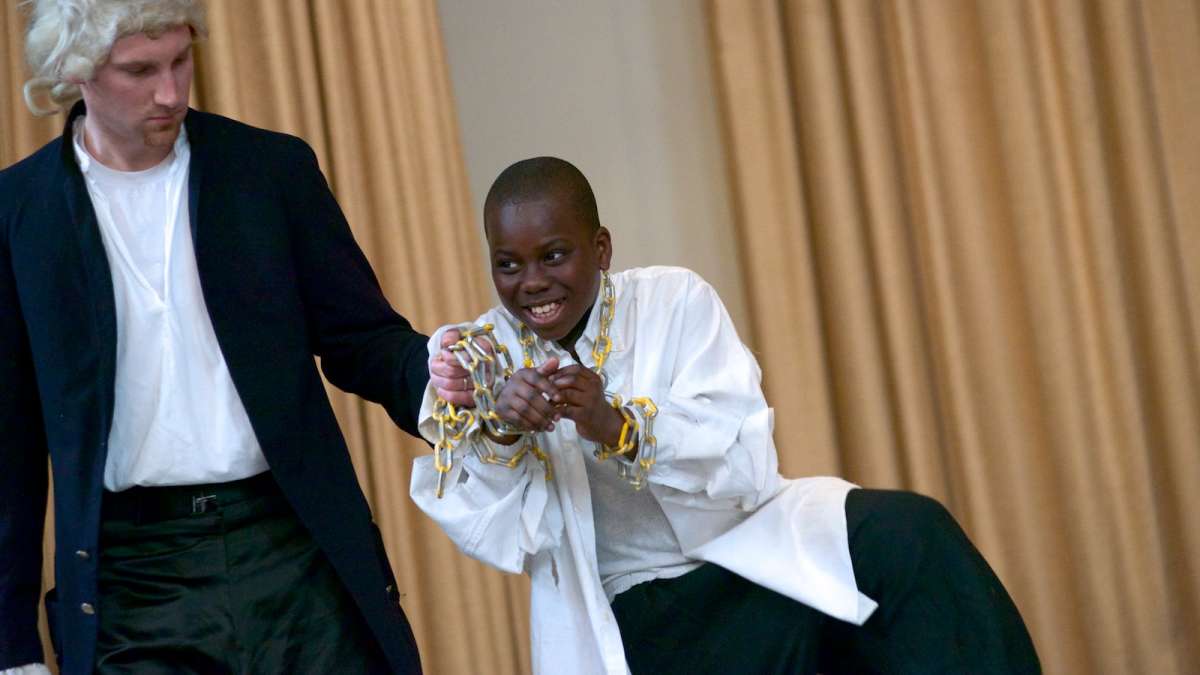
The show's 'African Journey' segment closed with a 'slave auction.' (Bas Slabbers/for NewsWorks)
African drums echoed through the auditorium of Roosevelt Elementary School in Germantown on Friday. The instruments accompanied students as they presented “Freedom’s Coming,” a musical performance that celebrated black history and honored the life of the late Nelson Mandela.
In scenes that linked African and African-American cultural contributions, Roosevelt’s first through eighth graders presented a Ghanian song, a Guinea rite of passage dance and spoken-word recitations that reviewed the histories of prominent figures.
Students also performed an emotional interpretation of a slave-auction poem and, in the second half of the program, presented a mini-play.
Entitled “Freedom’s Coming,” it offered a history of Mandela’s fight against apartheid.
Filling in the arts-cuts gap
Sister Lisa Hopkins, the show’s producer and community activist, wrote “Freedom’s Coming” in the wake of Mandela’s death in December.
Hopkins runs the Kama-Sahlor Cultural Performing Arts Group along with show choreographer and Dejembe drummer Craig Bogan-El.
The pair has volunteered to lead an after-school performing-arts program at Roosevelt for the past two years.
Hopkins said that after seeing how the school district cut arts and after-school programs, they “wanted students to have the opportunity to learn culture and history.”
To produce the show, Kama-Sahlor received a grant from the Philadelphia Culture Fund and art-history education money from the Stenton historical site in Germantown.
The Art Institute of Philadelphia contributed West and South African costumes and students held a fundraiser through the Old Fashioned Candy Company.
Extensive rehearsals
In preparation for Friday’s event, students practiced an average of two hours a day for three months.
Workshops exposed them to West and South African song, dance and language as they learned about African history.
“Art saves lives,” said Hopkins, “especially in poverty-stricken places where children are surrounded by violence and drugs.”
As art history affords students the opportunity to “look back at [their] ancestors and culture,” Hopkins said it empowers them by connecting the present to the past.
As performers, students then learn to transfer their energy as they recreate the stories, voices and lessons of their ancestors, she said.
Students react
Jasmine McKethan, an eighth grader at Roosevelt, portrayed several characters on the stage.
She said the experience “gave me an opportunity to learn about other cultures and to explore other things.”
Over the past two years that she has worked with Kama-Sahlor, McKethan has learned “creativity” and “to not be so nervous” when talking, much less performing, in front of other people.
She said she hopes her younger brother, a sixth grader at the school, will see her as an example.
Roosevelt Elementary invited the public to attend two performances of the cultural celebration on Friday.
Family and community members were in attendance, but Roosevelt students filled a majority of the seats during the afternoon show. The boisterous, interactive crowd cheered on their classmates.
When asked about performing in front of her rambunctious peers, McKethan said rehearsals had prepared the cast well.
“We always had to be high energy,” she laughed.
Later this spring, the Kama-Sahlor group will work with students on a production of “The Lion King.”
WHYY is your source for fact-based, in-depth journalism and information. As a nonprofit organization, we rely on financial support from readers like you. Please give today.




